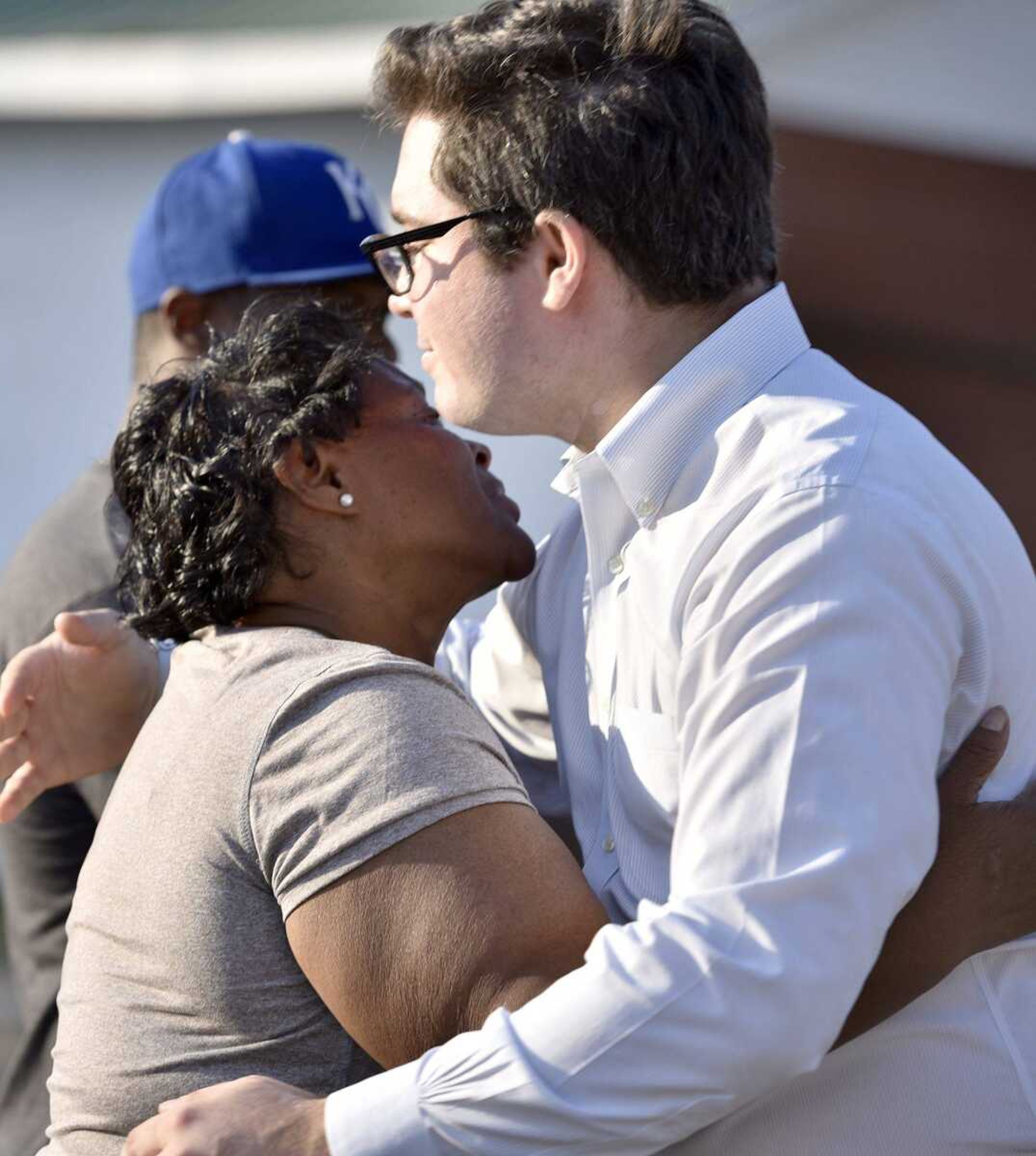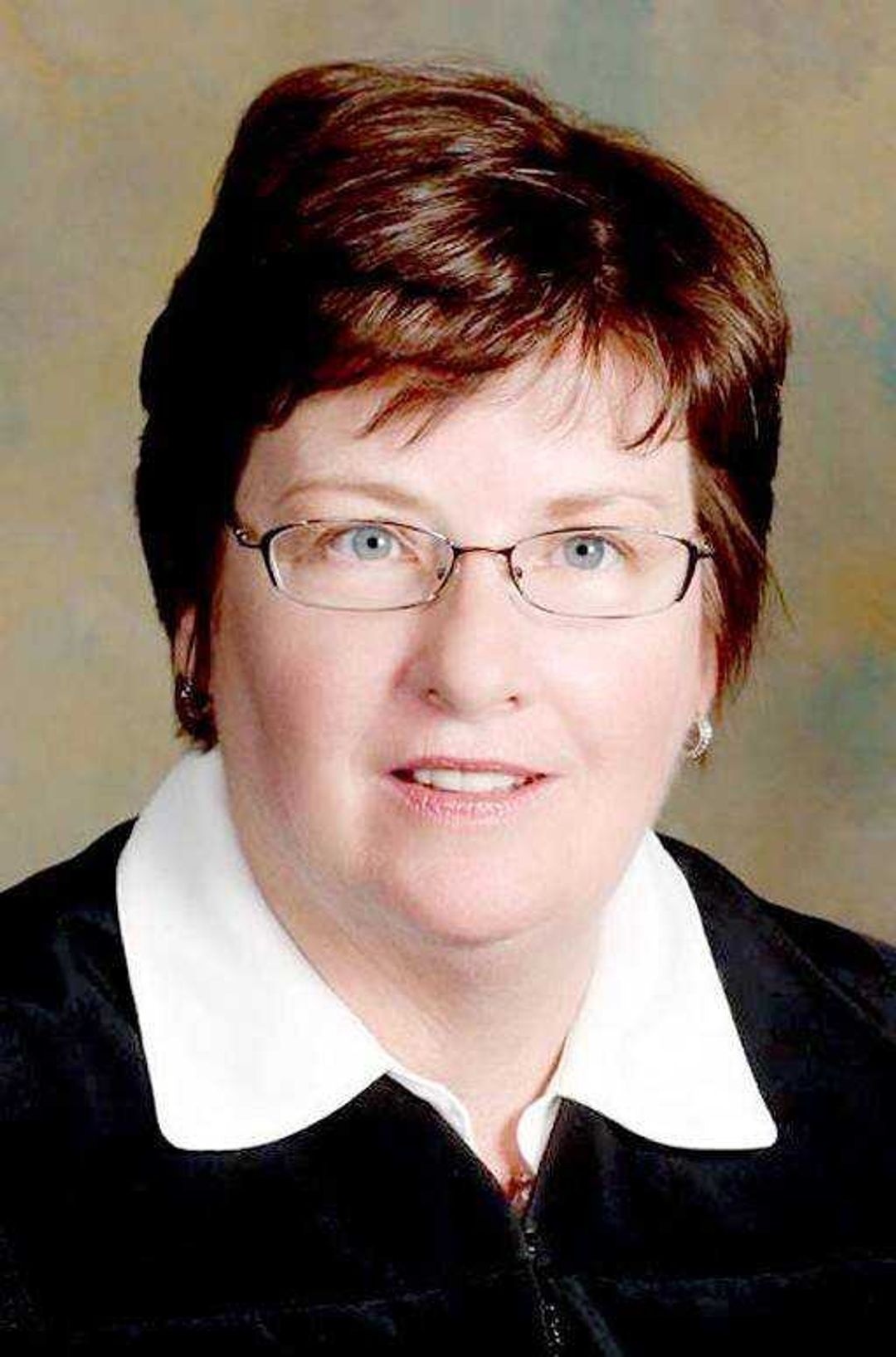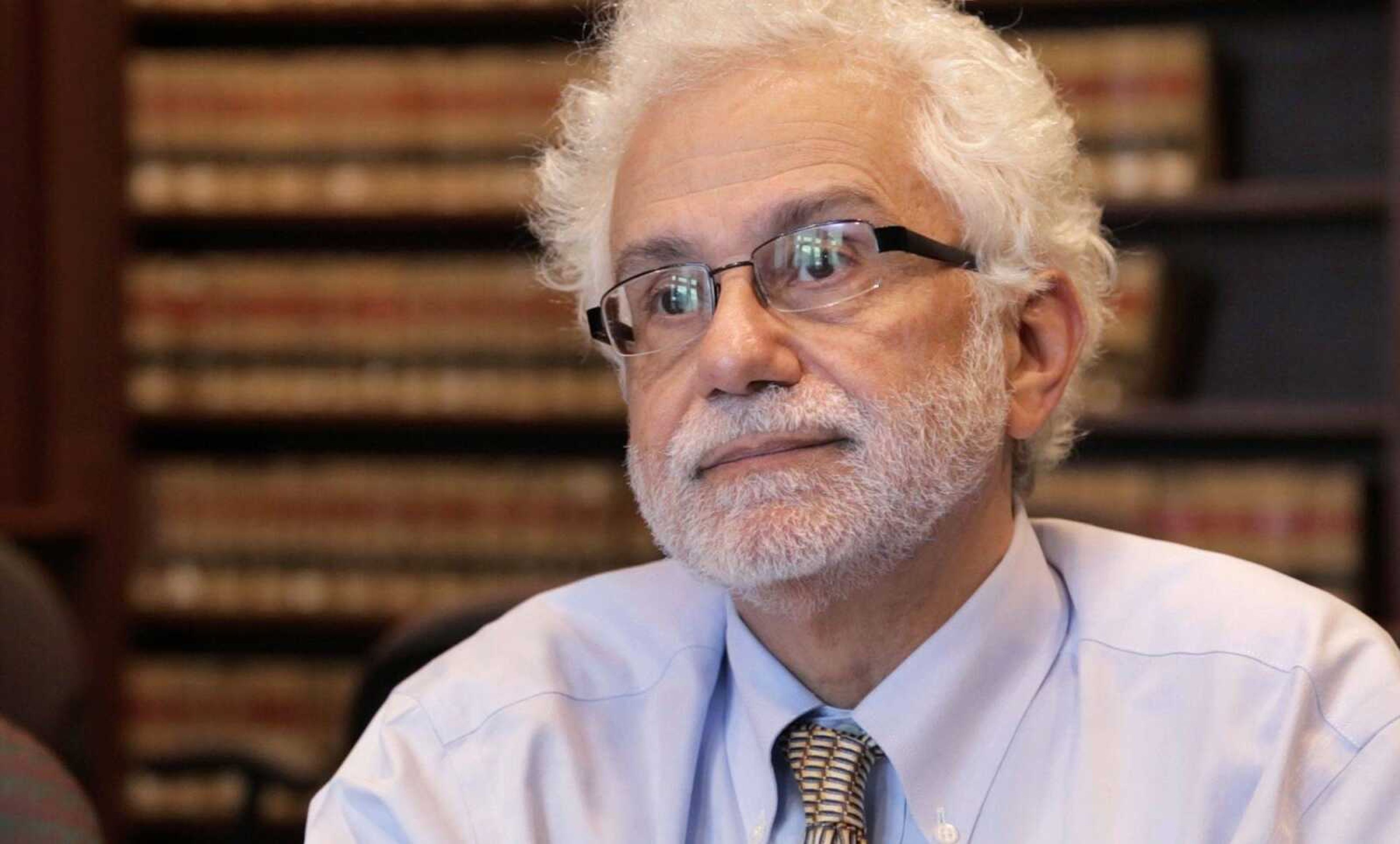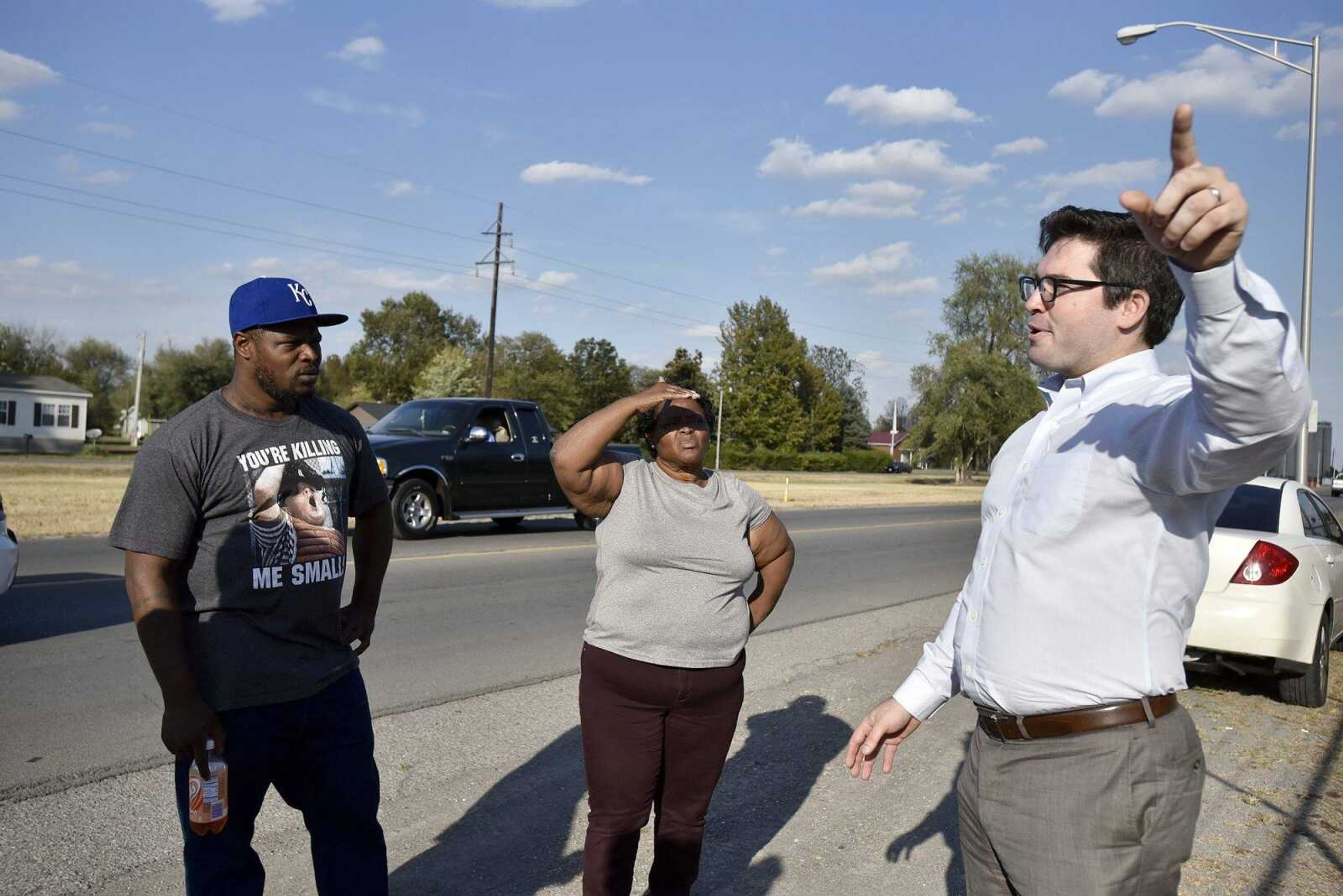Life Without, Chapter 6: Why is Robinson still in prison?
By the end of the evidentiary hearing May 15, 2015, the lawyers for David Robinson thought they had presented an ironclad case for actual innocence. The two witnesses in the case had recanted under oath, and they had a confession from a man who was not their client. Robinson's lawyers, Jim Wyrsch and Jonathan Potts, said Robinson's case was the best actual-innocence case they had seen -- stronger than Missouri's precedent...
The following story is one installment of an investigative series of the questionable conviction of David Robinson, who is accused of shooting Sheila Box in 2000. Please read all our other related stories and view our video series at www.semissourian.com/lifewithout.
By the end of the evidentiary hearing May 15, 2015, the lawyers for David Robinson thought they had presented an ironclad case for actual innocence.
The two witnesses in the case had recanted under oath, and they had a confession from a man who was not their client. Robinson's lawyers, Jim Wyrsch and Jonathan Potts, said Robinson's case was the best actual-innocence case they had seen -- stronger than Missouri's precedent.
But Cole County Judge Daniel Green denied Robinson's actual-innocence claim, leaving his lawyers perplexed.
Green cited several reasons he denied Robinson's habeas-corpus petition. Habeas corpus provides the means for inmates to reverse unlawful detention.
First, he wrote, the confession from Romanze Mosby was inadmissible as evidence. He cited State vs. Skillicorn, the same precedent Katharine Dolin and the Missouri attorney general's office cited in their response.
In State Vs Skillicorn, attorneys for Dennis Skillicorn argued that a statement made by Skillicorn's accomplice, Allen Nicklasson, to an FBI agent was admissible because it was against Nicklasson's interest. Skillicorn was convicted of murdering a man in a field east of Higginsville.
The federal court found that Nicklasson's statement was inadmissible because it did not meet the standard established in Chambers vs Mississippi: the statement was self-incriminating, each statement was made spontaneously to a close acquaintance and the statement was supported by other corroborating evidence.
"Properly instructed jurors could not have considered a verdict, in light of Mosby's confession, because in Missouri, declarations made by an unavailable witness against that witness' penal interest are not admissible as exceptions to the hearsay rule in criminal proceedings," Green wrote.
Green ruled sworn affidavits and depositions from Kelvin Howard -- Mosby's stepfather -- and other inmates who served time with Mosby were also inadmissible hearsay.
Green found Albert Baker's deposition testimony was not credible. He did not differentiate between Baker's sworn deposition testimony, which came with cross examination and a threat of perjury, and the recantation provided by public-defender investigator Butch Johnson that was considered in Robinson's 2006 habeas-corpus petition.
The recantation in that case was not signed, was not recorded and was not under oath. Baker also decided not to recant in 2004.
"While petitioner now presents yet another recantation by Baker it does not differ in any significant way from the information presented by Johnson and refuted by Baker himself in 2004," Green wrote.
Specific to the deposition testimony, Green wrote Baker was unreliable because he had drunk 48 ounces of beer about six hours before the deposition and provided few details that differed from the details of other witnesses and his previous statements.
Baker and Robinson also mentioned lawsuits that would follow Robinson being released.
"This Court finds Baker's deposition recantations as well as his taped 2012 statement not credible and in fact somewhat incredible, in light of the six times (at least) he has consistently repeated the facts to which he testified at trial," Green wrote.
Green wrote Jason Richison's 2004 recantation of his testimony in Robinson's trial was not credible because he was not medicated for schizophrenia at the time of the deposition and "levied outlandish accusations of abuse in the Scott County Jail at the hands of police officers investigating the murder."
"Richison also had provided the facts to which he testified at trial on at least three different occasions," Green wrote.
The precedent for actual innocence in Missouri is Amrine vs. Roper. Three witnesses recanted in the murder case against Joseph Amrine, who was facing the death penalty if the conviction was upheld.
Green wrote Robinson's case did not meet the standard of Amrine's because Robinson was not presenting new evidence. All the evidence Robinson submitted was considered in 2006. Green also stated Baker and Richison's testimonies were not the only evidence against Robinson at trial.

"While the State did not present DNA or fingerprints; the State need not present physical evidence, it can rely solely on circumstantial evidence," Green wrote. "Petitioner also offered an alibi defense. As an alibi is substantive evidence, the jury was free to believe or disbelieve it. Petitioner was subsequently convicted; it is evident that the jury did not believe his alibi defense."
Robinson's lawyers also argued Robinson's case met a standard in the Giglio vs. United States precedent. John Giglio forged $2,300 in money orders with the help of Robert Taliento, a teller at a bank who cashed the orders. One federal prosecutor offered Taliento a deal for his testimony against Giglio, but that information was not disclosed to the jury. The federal prosecutor was not the same attorney who made the deal with Taliento. The prosecutor in the case did not know about the deal, but the U.S. Supreme Court ruled in 1972 that the prosecutor's knowledge of the information did not matter.
In Robinson's case, the prosecuting attorney should have known Baker or Richison was lying, Robinson's attorneys argue.
Green wrote Robinson's arguments -- that Baker was paid, Richison and Robinson never were in the same cell, and their testimonies contradicted the testimony of Antonio Johnson, among others -- does not substantiate a claim the state should have known Baker or Richison was lying.

"Additionally, this claim was directly refuted at the evidentiary hearing by trial prosecutor Elizabeth Bock, a witness this Court finds to be most credible," Green wrote.
Bock now serves as a district-court judge in Douglas County.
Wyrsch said Green expressed the opinion of just one judge, and he hopes his opinion is not indicative of a future response from higher courts.
Wyrsch and Potts find Green's stance on recantations from Baker and Richison hard to understand.
"There's no evidence that Jason knew David. ... There's differing testimonies whether they're in the same cell or not. He overhears (David) say, 'I shot that bitch,'" Wyrsch said. "Who would do that? People who are in jail are trying to get out of jail. That would not be a way to do that. ... We're inherently skeptical of jailhouse snitches."
Washington University law professor Peter Joy, who is not involved with the Robinson case, said the fact witnesses have recanted makes their original testimony questionable.
"Recanting is against your interest in a number of ways," Joy said. "In an extreme way, it could expose you for charges of perjury. The other way that going on record as having lied (is against his interest), he no longer has any credibility if somebody were to confess a crime to him. ... He's not going to be a believable witness."
In interviews with the Southeast Missourian, Baker and Richison said they stand by their recantations.

Joy said Mosby's taped confession should have been admissible because it was against his previous penal interest. Mosby's statement meets at least two of the factors cited in Chambers vs. Mississippi: the statement was self-incriminating and it was corroborated by other evidence, particularly the statements of Antonio Johnson, Kevin King and Ronnie Robinson.
"Statements of an individual that are against their own interest fit an exception to hearsay," Joy said. "For example, if Mr. Robinson had confessed -- even if it was just to a police officer, not in writing, not under oath -- if he was Mirandized and confessed to the murder, that police officer would be able to get on the stand. I understand the prosecution making the argument, but it is still against that person's interest."
U.S. Supreme Court ruling Chambers vs. Mississippi, 1973, featured a man, Gable McDonald, who confessed to shooting a Mississippi police officer in a sworn statement and told the story to three other people. The Mississippi court did not allow the three people to testify and did not allow cross examination of McDonald based on its evidentiary rules before convicting Leon Chambers of murder. The court ruled in Chambers' favor.
"The bigger principle with Chambers is you can't use mechanical rules to defeat the ends of justice," Potts said. "Evidentiary rules are not ends in themselves."
Potts added the Skillicorn decision should not be applicable to Robinson's case because it was a federal habeas-corpus petition and thus under an intentionally higher standard than a state proceeding.
Wyrsch and Potts said Baker's deposition testimony is new evidence, particularly because Baker's testimony was a major factor in the denial of Robinson's previous appeals and habeas-corpus petitions.

The 2015 hearing was the first time Baker recanted under oath, and that was considered with Richison's recantation and Mosby's confession -- very similar to Amrine, in which different parts of that case were apparent at different times, Wyrsch said.
"You just don't have a case like this; this is the first time I've seen it, where it's all there," Wyrsch said.
Wyrsch and Potts argue Richison and Robinson never sharing a cell is not a minor fact, and it is clear Bock had knowledge they were not cellmates.
Wyrsch noted the language used in Green's decision was similar to the language used by the Missouri attorney general's office. Wyrsch and Potts have wondered what it would take for the attorney general's office to stop arguing to uphold Robinson's conviction.
"I don't know what else we would need to do to prove his innocence," Wyrsch said. "Except find a videotape."
During a Cape Girardeau campaign stop when he was running for the office of governor, Missouri Attorney General Chris Koster said he was not intimately familiar with the details of Robinson's case, but the people in his office had worked very hard to obtain a conviction.
Koster said if the newspaper would request information through the office's public-relations officer, his office would provide information about the case.
Later, the lawyer working on the case declined the newspaper's request for an interview, citing that the case was before the Missouri Supreme Court.
Joy, the Washington University law professor, said it would not matter whether Robinson's team was presenting DNA evidence or a video; the attorney general's office would fight to uphold a conviction.
"There have been cases where people have been exonerated through DNA evidence, and the prosecutor on the case is still convinced they got the right person," Joy said. "It's this idea of the finality of the verdict that gets most prosecutors; once they have a conviction, to really hold on to that. ... The vast majority of prosecutors or attorneys in the attorney general's office are convinced that they have absolutely the right person behind bars."
Any conviction is a good conviction from the prosecution's point of view, Joy said. In this case, the prosecution would have no evidence if a court ordered a retrial.
"As far as the law is concerned, he is the one who did it," Joy said. "The biggest barrier he's facing right now is convincing the court that it should treat what he's presented to the court as sufficient evidence that they should re-examine. He couldn't convince the court of appeals."
The fact Robinson was convicted still swings the scales of justice in the prosecution's favor, Joy said.
August 2016
After Green denied Robinson's case, Wyrsch and his colleagues filed a habeas-corpus petition to the Western District Court of Appeals, which was denied in five days.
They sent a petition to the Missouri Supreme Court, which accepted it in August. The court asked the state to file a response to the petition and accepted a subsequent response from Robinson's lawyers.

Wyrsch and Potts are hopeful because the court accepted their petition, although it still could issue a denial as their decision.
Potts said they had hoped Judge Richard Teitelman would make a ruling on the Robinson case before he retired, in part because he wrote the opinion on the Amrine decision. The Amrine ruling was 4-3, with Teitelman serving as the tiebreaker.
Teitelman died Nov. 29.
Potts said he does not know whether the Supreme Court will appoint a special judge in this case to serve as a tiebreaker or wait until another justice is appointed to the court.
He said the Missouri Supreme Court still has incentive to make a ruling on the Robinson case, however, because of a recent decision from the Western District Court of Appeals on the Rodney Lincoln case.
As with Robinson, Rodney Lincoln was convicted to life without the possibility of parole for murder, and he had witnesses recant in his case.
The Western District Court of Appeals ruled Amrine applies only to death-penalty cases, and thus actual innocence cannot be a point of argument in other habeas-corpus cases.
The Supreme Court may want to reverse this decision if it wants to maintain actual innocence as grounds to overturn convictions in Missouri, Potts said.
Joy said the Lincoln decision may set a precedent the Supreme Court would uphold, however.
"I think the Lincoln case is a real big hurdle," Joy said. "The court of appeals basically said that even when presented with a case of actual innocence, unless it's a death-penalty case, they're not empowered to do anything."
Wyrsch and Potts said the Supreme Court gives Robinson his best chance to overturn his conviction.
"I don't think it's his last chance, but I think it's his best chance," Wyrsch said.
If the petition is denied, the legal team will try a federal habeas-corpus petition. Robinson's lawyers filed a federal habeas petition in 2010 that was denied.
Federal law does not have a precedent for actual innocence such as the Amrine decision, Wyrsch said. The lawyers would focus on arguments a mistake was made by the prosecution, as in Giglio, or by the defense team.
Wyrsch said those arguments are more difficult.
As at the state level, Robinson's attorneys would try to work their way up the federal ladder, beginning at district and trying for the U.S. Supreme Court.
bkleine@semissourian.com
(573) 388-3644
Pertinent address: 8200 No More Victims Way, Jefferson City, MO
Editor's note: This project made possible by the support of Southeast Missouri State University. Among its award-winning programs are Criminal Justice and Sociology, Mass Media and Social Work.
Connect with the Southeast Missourian Newsroom:
For corrections to this story or other insights for the editor, click here. To submit a letter to the editor, click here. To learn about the Southeast Missourian’s AI Policy, click here.










